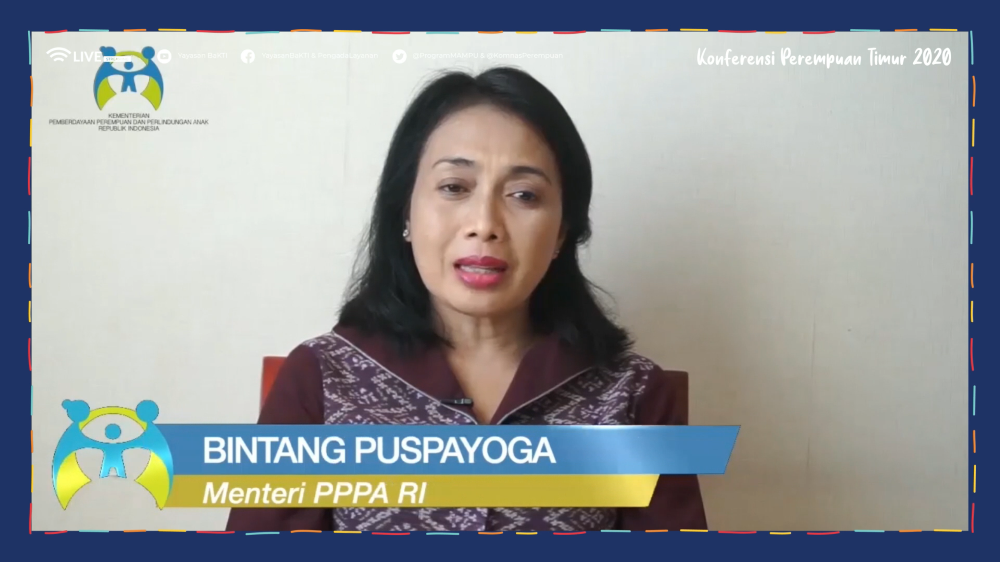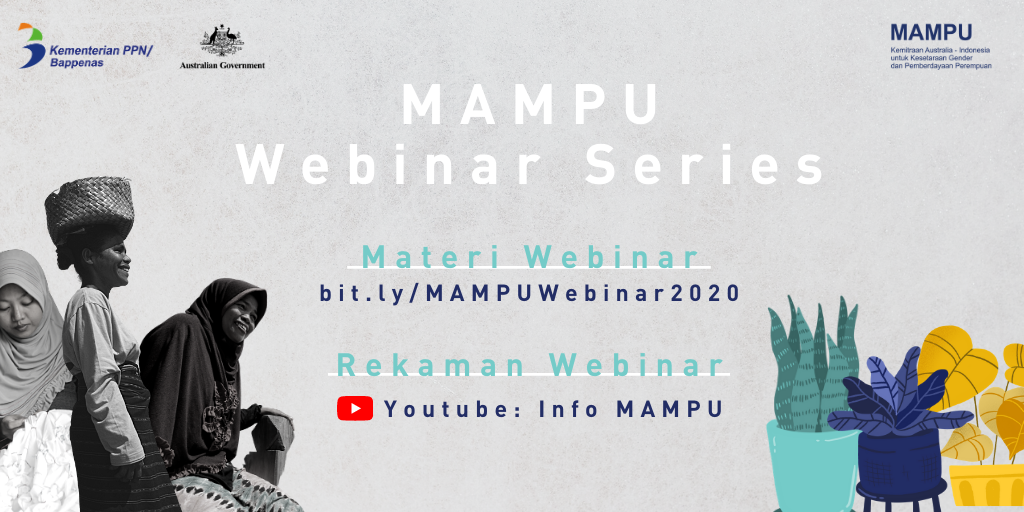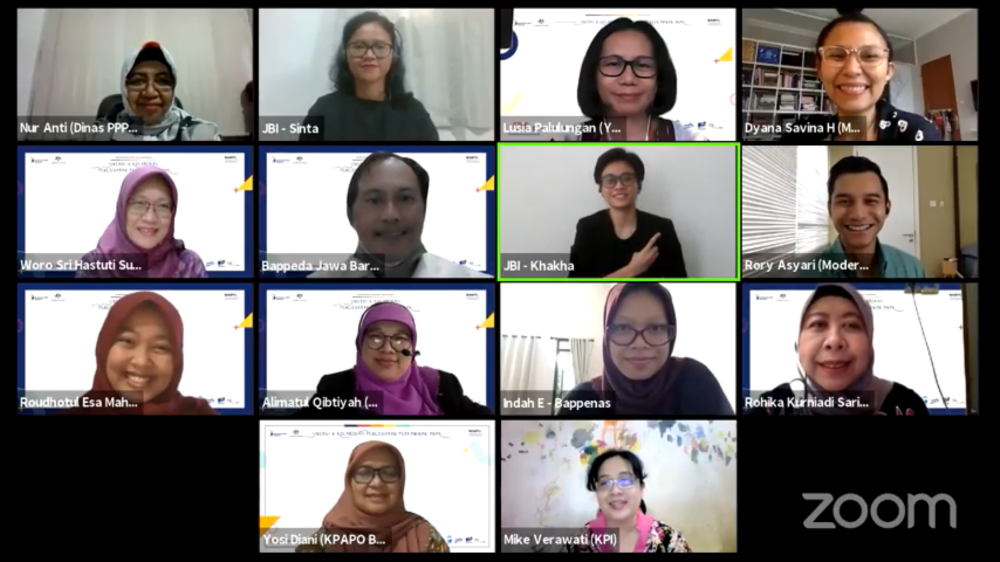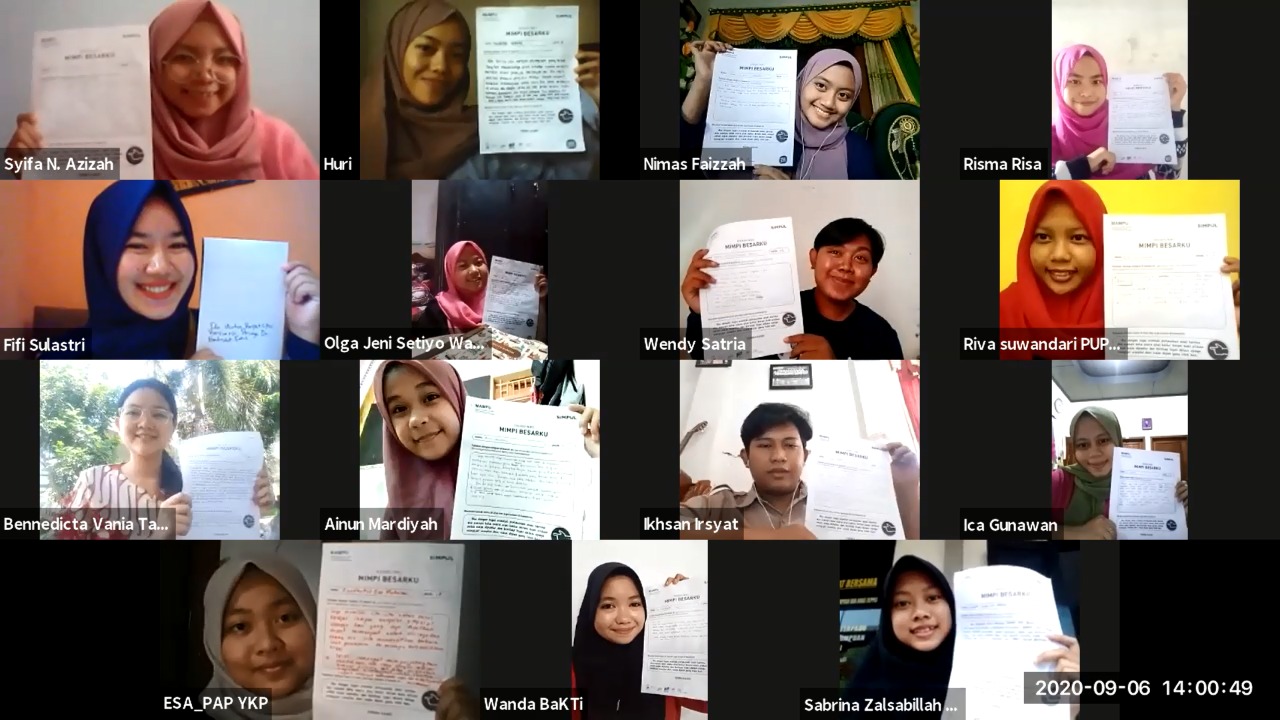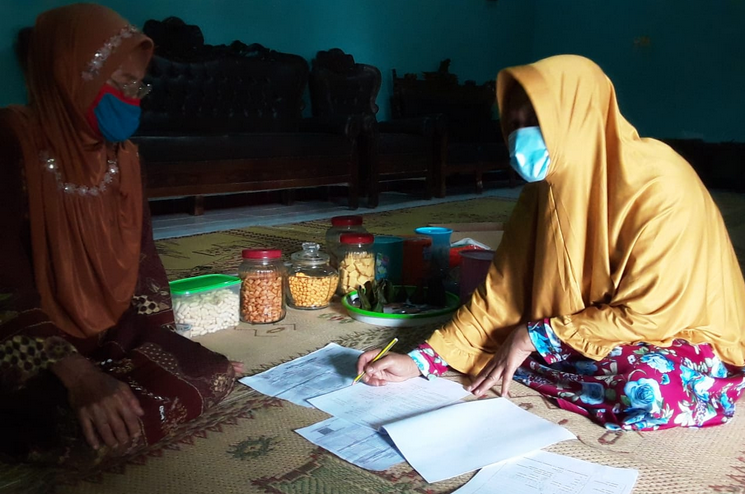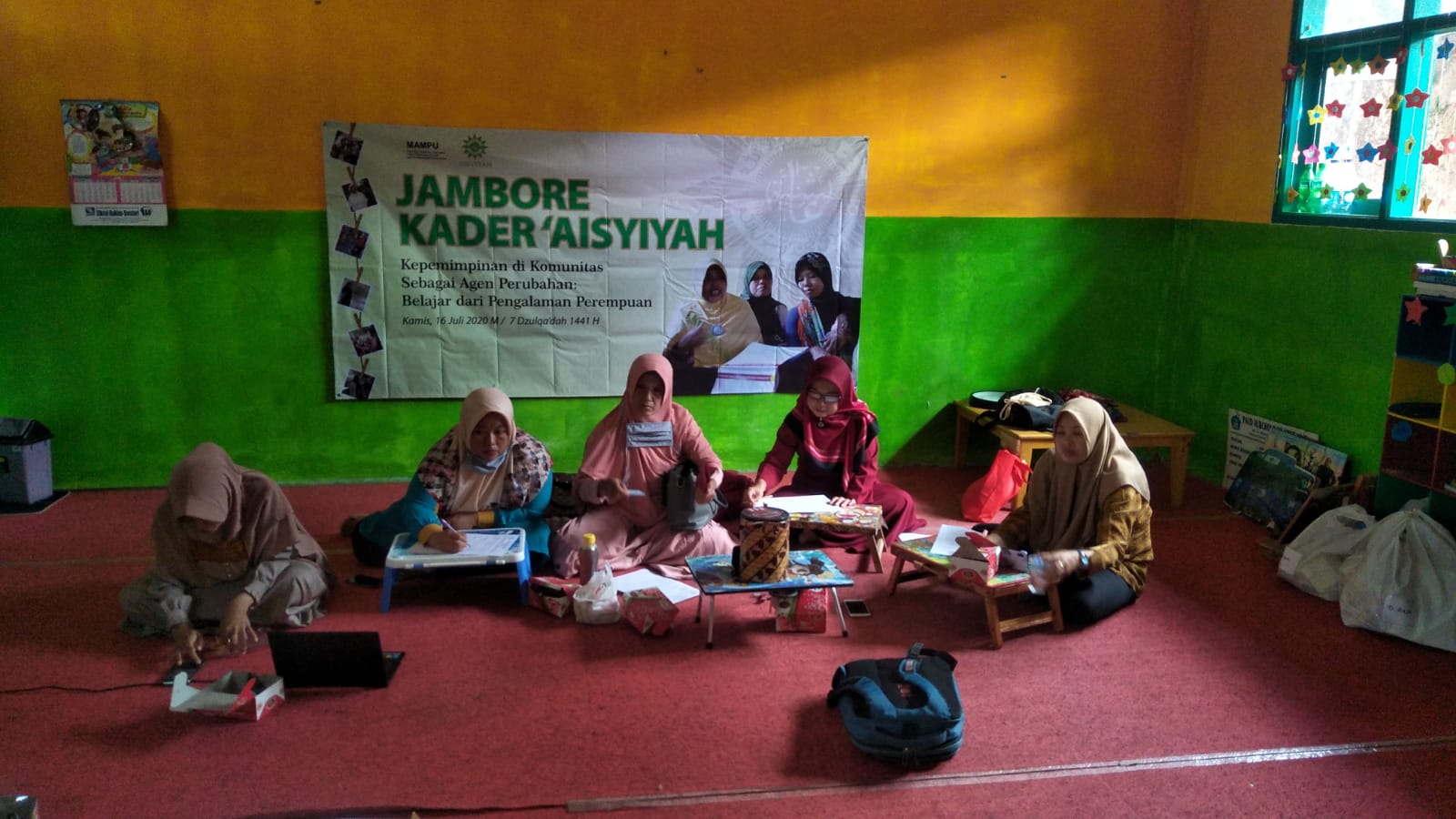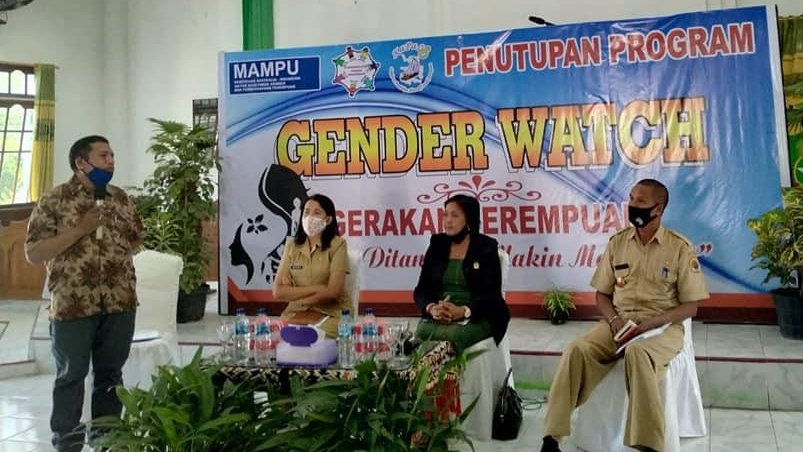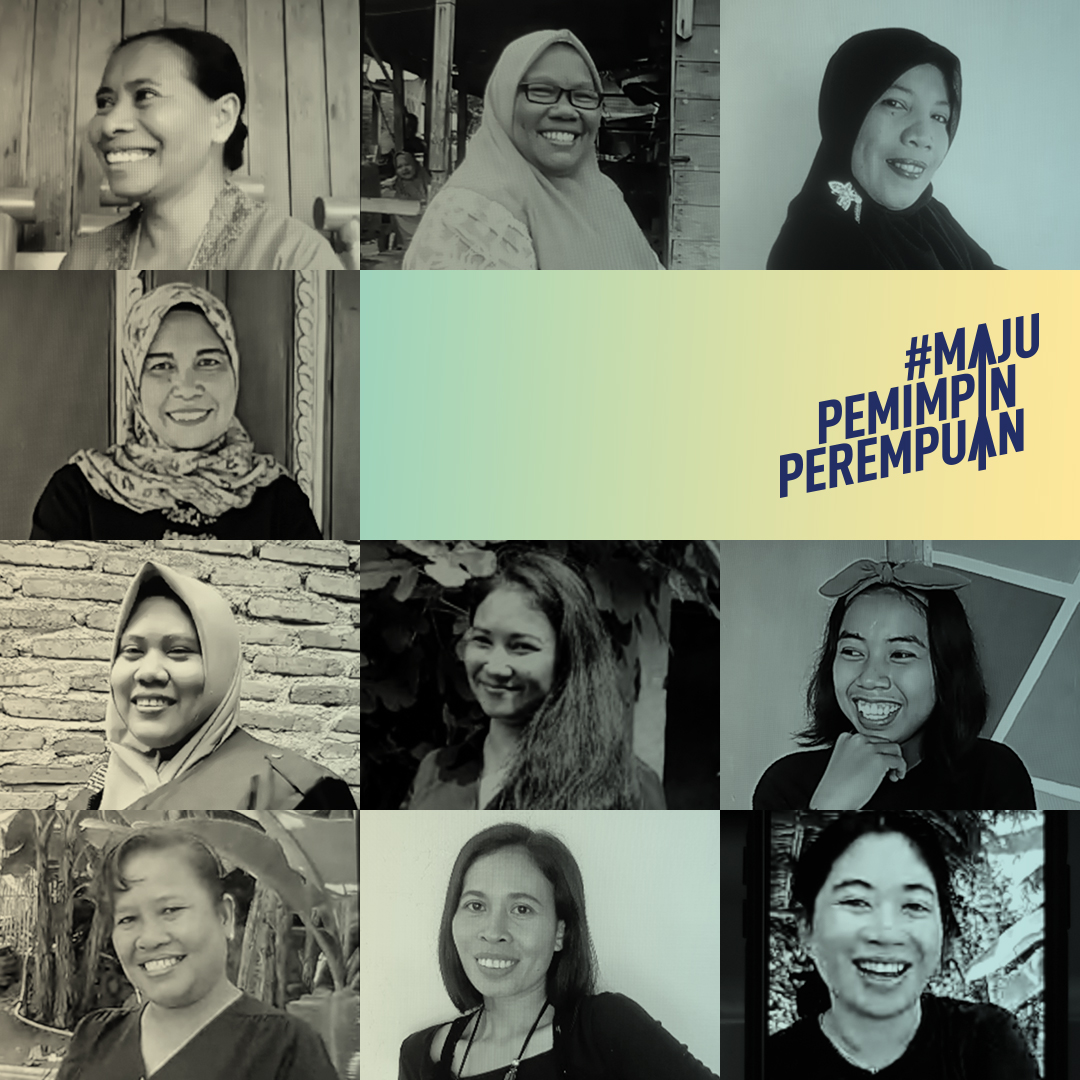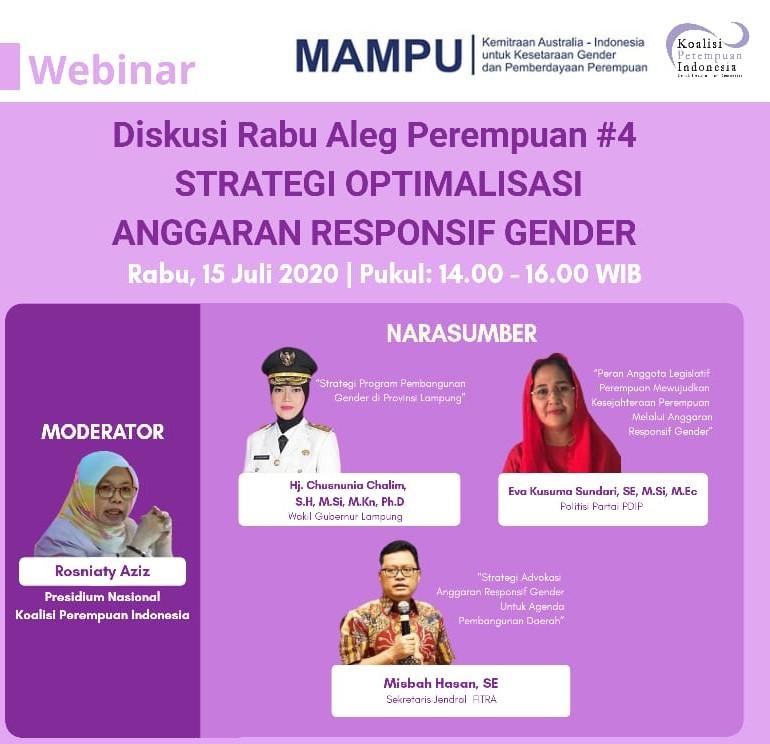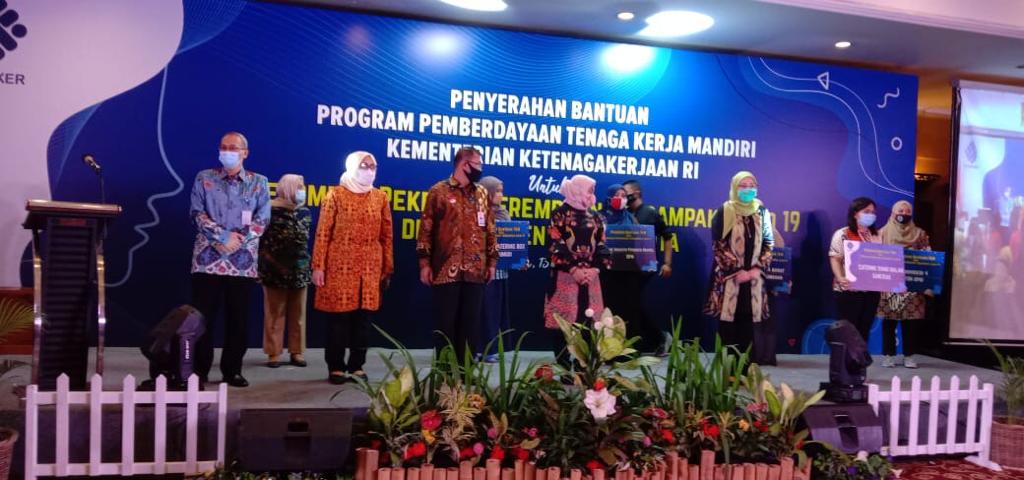Event
MAMPU National Conference Puts Violence against Women in the Spotlight
17 February 2020Author: Amron Hamdi

On 27 November 2019, MAMPU hosted a national conference titled ‘Multi Stakeholders Synergy for Gender Equality and Women’s Empowerment’ in Jakarta. The conference aimed to foster understanding amongst members of the executive and legislative for the 2019-2024 period and build their commitment to creating policies and regulations that are responsive to gender in all sectors of national development. The conference attendees discussed the issue of violence against women during a specially themed break-out session.
Six speakers from diverse backgrounds presented at the break-out session, namely Azriana Manalu from the National Commission on Violence against Women (Komnas Perempuan); Edy Wibowo from the Supreme Court; the Assistant Deputy for Protection of Women’s Rights at the Ministry of Women’s Empowerment and Child Protection, Destri Handayani; Sri Dewi Indajati representing the Central Java Office of Women’s Empowerment, Child Protection, Population Control and Urban Family Planning (DP3AP2KB); Veni Siregar from the Service Providers Forum (FPL) and Maria Ulfa Anshori of the Indonesian Women’s Ulama Congress (KUPI).
Azriana highlighted the three core principles of the Convention on the Elimination of all Forms of Discrimination against Women (CEDAW), namely non-discrimination, substantive justice and state responsibility. These principles, she said, are in accordance with the foundations of the Constitution of Indonesia which refers to the importance of the protection, fulfilment and enforcement of human rights. She explained that although there are 290 policies considered conducive to the elimination of violence against women have been developed by the state, there are still 381 regional regulations and 40 national-level policies that discriminate against women.
Edy spoke next and explained the efforts of the Supreme Court in relation to eliminating violence against women through the issuance of the Supreme Court Regulation (PERMA) No. 3/2017 regarding establishing Guidelines for Presiding Over Cases Involving Women Faced with the Law. He said the regulation focused on guiding judges during the trial, sentencing, and the examination of witnesses.
Destri Handayani spoke about the Women’s Empowerment and Child Protection Ministry’s five priority programs for 2019-2024. These priorities include: empowering women in the field of entrepreneurship, strengthening the role of women in children’s education, reducing violence against women and children, reducing child labor, and preventing child marriage.
Sri Dewi Indajati from DP3AP2KB Central Java continued the discussion by speaking about her experience implementing the innovative Integrated Criminal Justice System for the Handling of Victims of Violence against Women (SPPT-PKKTP) in Central Java.
Meanwhile, Veni Siregar talked about FPL’s experience in handling 3,500 cases of violence against women and children since 2017. FPL consists of 115 organisations that provide services to victims of violence against women in 32 provinces across Indonesia. Veni explained that the process of handling cases through legal channels was not always sensitive to the conditions of victims. Examples of this, she said, include the creation of police investigation reports which often present uncomfortable questions to victims, victims of violence not being accompanied by people they trust, and the tendency of law enforcement officials to initiate mediation to resolve cases. Cases of violence against women are still difficult to overcome because such cases are considered private issues that cause family embarrassment if exposed in public.
Maria Ulfa Anshori from KUPI closed the session by talking about the role of women Islamic scholars, or ulama, in reducing violence against women. The ulama work as agents of change by educating their communities about the dimensions of violence against women and encouraging behavioral change in the community. The ulama also work to facilitate the recovery of individuals who have experienced gender-based violence — especially students of Islamic boarding schools. KUPI conducts policy advocacy by using religious knowledge to justify the need to prevent violence against women.
The following four recommendations were produced during the break-out session: 1) Disseminate information about PERMA No. 3/ 2017 throughout Indonesia by involving law enforcement agencies, especially the Prosecutors Office, Police, and DP3AP2KB; 2) Encourage the provision of comprehensive services for women victims of violence by involving all relevant institutions across geographic boundaries; 3) Involve religious leaders and institutions in the handling of cases of violence against women because they have the potential to promote systematic prevention through their work as social change agents; and 4) Harmonise national and regional level policies and repeal policies that discriminate against women.
The session was designed as a forum where various actors could exchange thoughts and experiences and explore opportunities for cooperation to work towards the elimination of violence against women.





